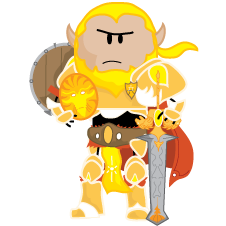I mean, the reason for that assumption is because Dungeons and Dragons has been around so long, and cast such a wide shadow, that most gamers just default to it, regardless of specifics. Forgotten Realms, over the years, has tried to cram all those different styles you mentioned in to the same setting, and it's only become more pronounced as FR became the primary D&D setting through sheer inertia. And Pathfinder did the same thing with Golarion. When people say "Fantasy RPG," most of the time what they mean is "Dungeons and Dragons," and what I'm trying to say is that there isn't really a "Dungeons and Dragons" tier sci-fi RPG, though Lord knows Starfinder is TRYING to be that...
View Single Post
-
2021-05-07, 05:46 PM (ISO 8601)Titan in the Playground


- Join Date
- Apr 2007
- Location
- Hastings, MN
- Gender

 Re: Which SciFi ttrpg has the largest player base?
"Reach down into your heart and you'll find many reasons to fight. Survival. Honor. Glory. But what about those who feel it's their duty to protect the innocent? There you'll find a warrior savage enough to match any dragon, and in the end, they'll retain what the others won't. Their humanity."
Re: Which SciFi ttrpg has the largest player base?
"Reach down into your heart and you'll find many reasons to fight. Survival. Honor. Glory. But what about those who feel it's their duty to protect the innocent? There you'll find a warrior savage enough to match any dragon, and in the end, they'll retain what the others won't. Their humanity."



 Reply With Quote
Reply With Quote